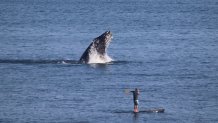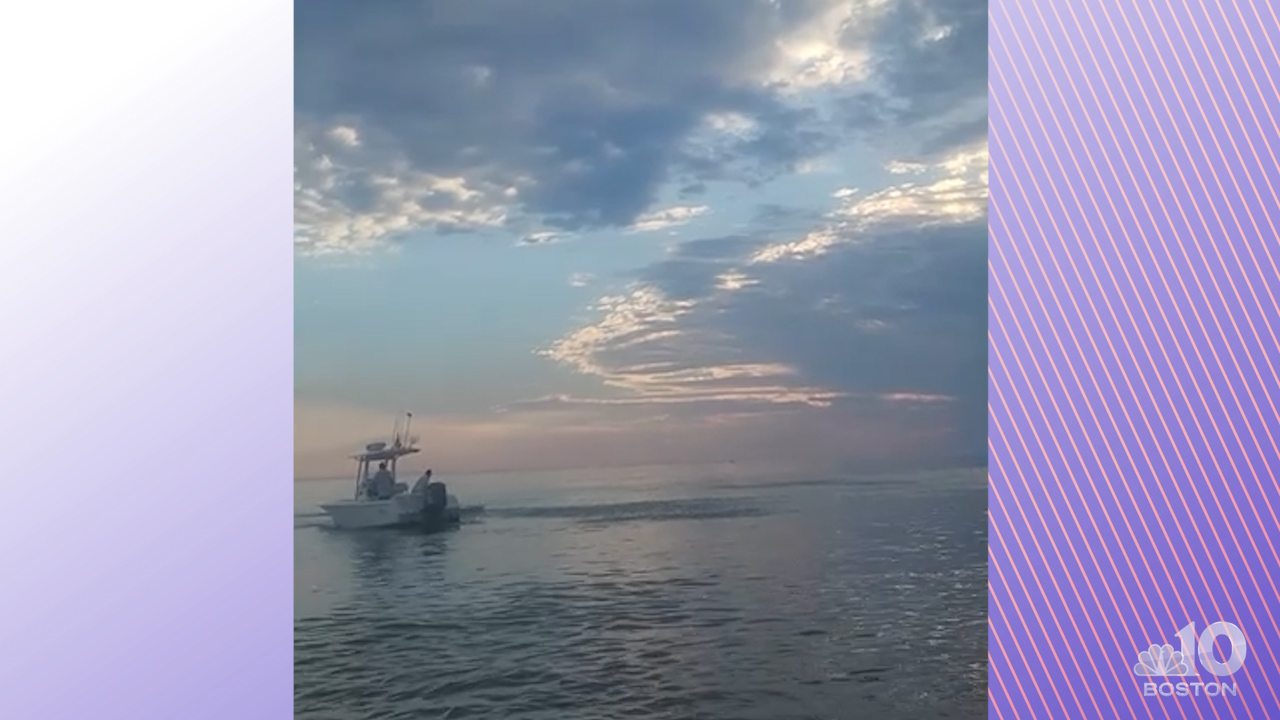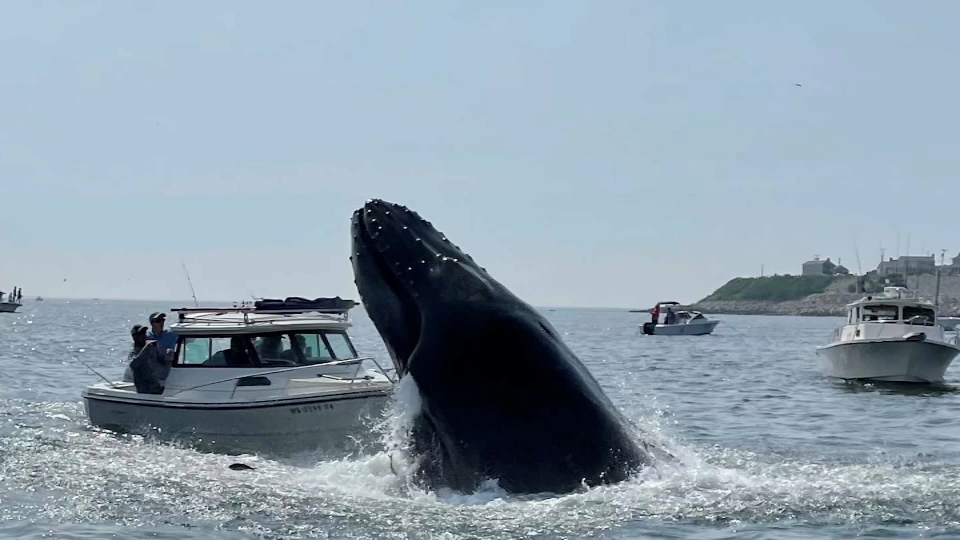Massachusetts officials are asking people operating boats of any size to take caution off the coast of Plymouth after a series of close encounters with humpback whales.
Footage and photos of a humpback whale jumping out of the water and landing on a boat Sunday has been seen around the world. But it's just one of many whale sightings, prompted by an apparent feeding frenzy under the waves, that have caused a frenzy above the waves as well this month.
WATCH ANYTIME FOR FREE
Stream NBC10 Boston news for free, 24/7, wherever you are. |
The Massachusetts Environmental Police and the Department of Fish and Games' Division of Marine Fisheries are asking people to be careful in the area "where an aggregation of three juvenile humpback whales have been feeding for at least a week."
Get updates on what's happening in Boston to your inbox. Sign up for our News Headlines newsletter.
The agencies noted that the behavior of the young whales is unpredictable while they are feeding in the shallow area.
Anyone operating a vessel or a personal watercraft like a kayak or a paddleboard is advised to be careful in the area, the agencies said.
The Plymouth harbormaster had been monitoring the area since 5 a.m. Sunday to ensure boaters' safety after a boat was bumped by a whale on Friday in another caught-on-camera incident.
While whales can be marvelous creatures, many kinds of marine life are protected under the federal laws that require people to keep a wide berth away from protected animals — including humpback whales.
"It is important to remember that vessel strikes not only can harm the whale but also be dangerous to humans and vessels as well. It is vital to stay at least 100 yards away from whales to minimize any potential interactions," the nonprofit Whale & Dolphin Conservation said in a statement Monday.
The statement from the MEP and DMF pointed out that the Marine Mammal Protection Act and Massachusetts Endangered Species Act make it illegal to harass the whales.
"Harassment includes any act of pursuit, torment or annoyance that can injure or disrupt the feeding behavior of the animal," the agencies said.
The National Oceanic and Atmospheric Administration advises boaters to follow its guidelines for viewing whales and other marine life.
The whales spotted off southern Massachusetts this July have been humpback whales, between 35 and 55 feet long and up to 40 tons, according to Whale & Dolphin Conservation, whose North American office is based in Plymouth.
Click here to read more about what's bringing the whales to Plymouth.


On Monday, signs were up reminding boaters of the danger whales can present. People are also supposed to keep at least 100 yards from humpback whales and other marine life protected under the Endangered Species Act and the Marine Mammal Protection Act.
"Although it can be tempting to try to get close to these marine animals, it's always best to view them from a safe and respectful distance for their safety—and yours. Learning how to interact with and observe ocean animals can help you make the right decisions when you encounter them by water, land, or air," NOAA says.



